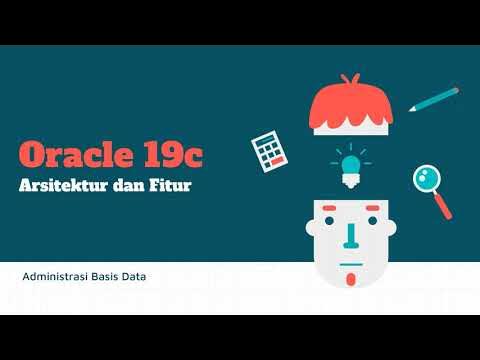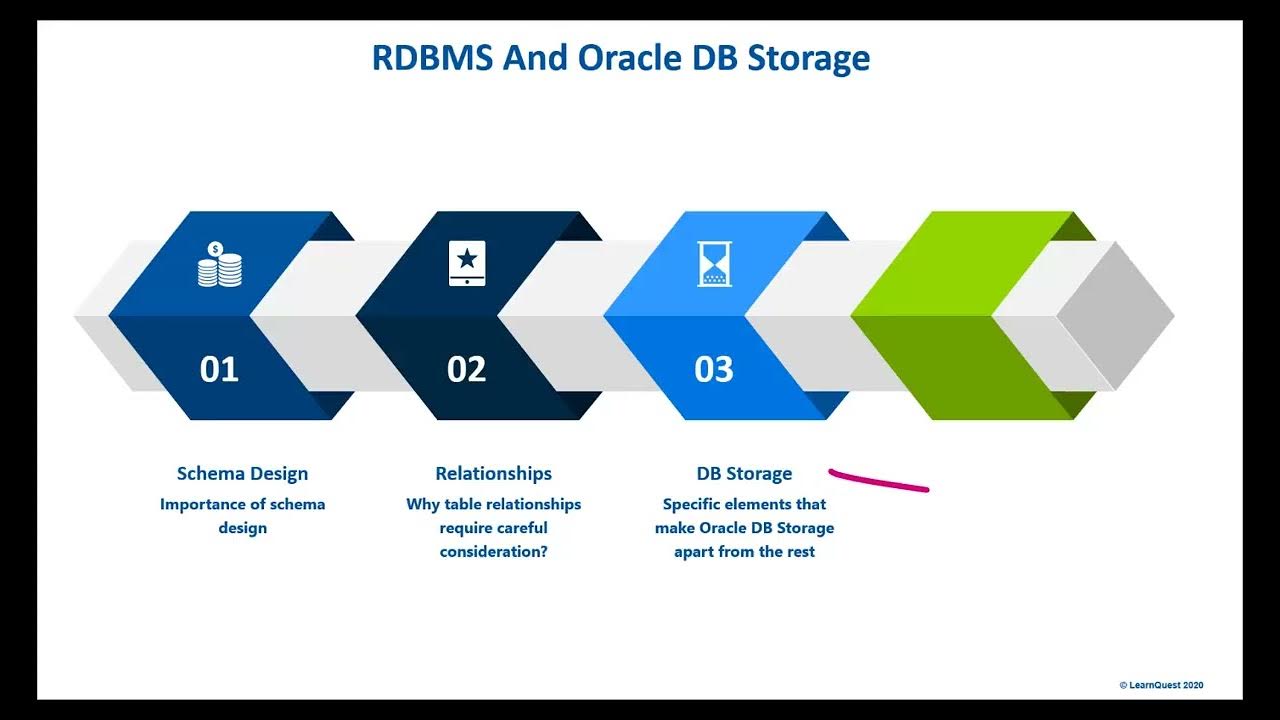Oracle Storage Architecture Part 3
Summary
TLDRThis video explains the architecture of Oracle databases, focusing on the interaction between client applications and the Oracle listener, which facilitates connection requests. It discusses the roles of the System Global Area (SGA) and Program Global Area (PGA) in managing memory structures for database instances and sessions. Additionally, it highlights the importance of background processes that support the database operation. Understanding these components is crucial for effective database management, ensuring seamless communication between users, applications, and the database system.
Takeaways
- 😀 The Oracle listener process is essential for managing client connection requests to the database.
- 💾 Data files store the actual data, while system files support the database system's backend functions.
- 🔄 A database instance represents the running processes that manage the database operations.
- 🧠 The System Global Area (SGA) is a memory structure that is available to all processes within a database instance.
- 📦 The Program Global Area (PGA) is dedicated to individual sessions, maintaining session-specific information.
- 🔗 Sessions are the connections made to the database instance by applications, users, or processes.
- 👥 Each session operates independently, ensuring multiple users can access the database concurrently.
- 🔧 There are nine specific background processes crucial for the functionality of an Oracle database instance.
- ⚙️ The interaction between the listener, SGA, PGA, and background processes is fundamental to database management.
- 📊 Understanding these components is key for effective database administration and optimal performance.
Q & A
What is the primary purpose of the Oracle listener?
-The Oracle listener is a process that waits for connection requests from client applications and passes those requests to a server process that can access the database.
What components make up the Oracle database?
-The Oracle database consists of data files that contain tables, columns, and rows of data, as well as system files specific to the database system.
Who is responsible for managing and maintaining the Oracle database?
-The database administrator is responsible for managing and maintaining the database and its instance.
What does the System Global Area (SGA) do?
-The SGA is responsible for memory structures allocated when the database starts, and it is available to all processes on the database instance.
What is the difference between the SGA and the Program Global Area (PGA)?
-The SGA is shared among all processes, while the PGA is dedicated to individual sessions, maintaining separate memory for each session.
What is a database instance?
-A database instance refers to the processes running the database. Without an active instance, users and applications cannot access the database.
What is meant by 'sessions' in the context of Oracle databases?
-Sessions are connections made to the database instance by various endpoints, such as applications, users, or processes.
How many background processes are there in an Oracle database instance?
-There are nine specific background processes in an Oracle database instance.
What is the role of background processes in an Oracle database?
-Background processes manage various database tasks and ensure the database instance runs smoothly.
Can multiple sessions run simultaneously in an Oracle database instance?
-Yes, a single database instance can have multiple sessions running concurrently, facilitating connections from various users and applications.
Outlines

هذا القسم متوفر فقط للمشتركين. يرجى الترقية للوصول إلى هذه الميزة.
قم بالترقية الآنMindmap

هذا القسم متوفر فقط للمشتركين. يرجى الترقية للوصول إلى هذه الميزة.
قم بالترقية الآنKeywords

هذا القسم متوفر فقط للمشتركين. يرجى الترقية للوصول إلى هذه الميزة.
قم بالترقية الآنHighlights

هذا القسم متوفر فقط للمشتركين. يرجى الترقية للوصول إلى هذه الميزة.
قم بالترقية الآنTranscripts

هذا القسم متوفر فقط للمشتركين. يرجى الترقية للوصول إلى هذه الميزة.
قم بالترقية الآنتصفح المزيد من مقاطع الفيديو ذات الصلة

Administrasi Basis Data - Kupas Tuntas Arsitektur dan Fitur Oracle 19c

What You Will Learn in Module 4

1- What is Data, Database, DBMS and Types of Database | Fundamentals of Database

Introduction to Oracle Database | What is Oracle? full Explanation

O que é uma arquitetura de uma aplicação web?

Widely Used Databases
5.0 / 5 (0 votes)
